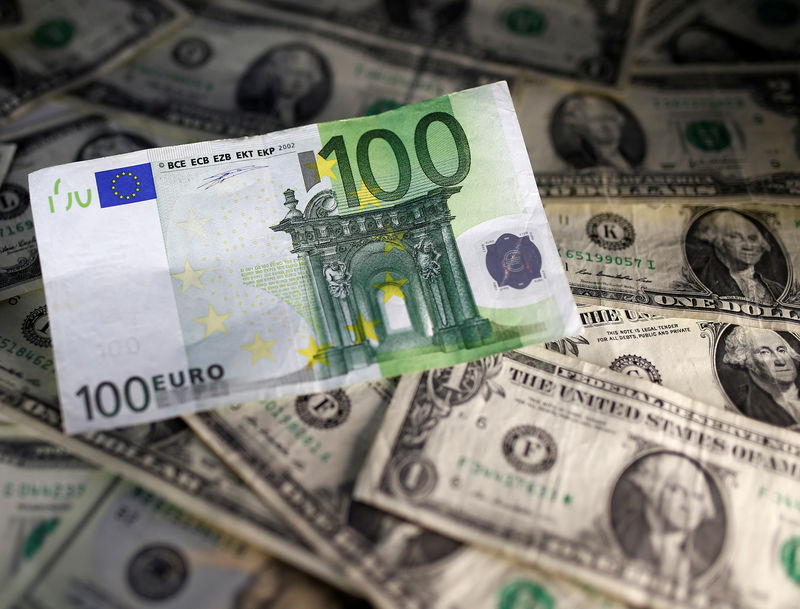Investing.com - The euro briefly dipped below the $1.20 level on Monday after European Central Bank Executive Board member Benoit Coeure warned that a persistent exchange rate shock could drag down inflation in the euro area.
EUR/USD hit a low of 1.1993 before pulling back to 1.2017 by 04:05 AM ET (08:05 GMT).
Coeure said improved euro zone growth can offset some of the negative effects of the euro's strength, but added that a persistent exchange rate shock could drag down inflation.
"Exogenous shocks to the exchange rate, if persistent, can lead to an unwarranted tightening of financial conditions with undesirable consequences for the inflation outlook," he said.
The euro hit a high of 1.2092 against the dollar on Friday, the most since January 2015. Expectations that the ECB will soon announce plans to taper its bond-buying stimulus program have driven the euro up around 14% against the dollar so far this year.
But the strong euro is a headache for the ECB at time when it is considering scaling back monetary stimulus because it pushes up the price of the euro area’s exports and reduces import prices, acting as a drag on growth and inflation.
Inflation in the euro area remains sluggish and some analysts think the ECB shouldn’t move until inflation is closer to its target of just below 2%.
The dollar remained supported against a basket of the other major currencies, recovering from its lowest levels in more than two years as tensions over North Korea eased and Hurricane Irma weakened.
The U.S. dollar index, which measures the greenback’s strength against a trade-weighted basket of six major currencies, was up 0.26% at 91.55, off Friday’s nadir of 90.99, the weakest level since January 2015.
Market sentiment was boosted after North Korea refrained from an expected missile test at the weekend.
Investors remained watchful ahead of a United Nations Security Council vote on harsher sanctions against Pyongyang later Monday, after its recent nuclear test.
Risk aversion also eased after Hurricane Irma struck the U.S. with less force than had been feared.
Traders remained cautious over the possible impact of the storm, which knocked out electricity to around 4 million homes and businesses in Florida.
